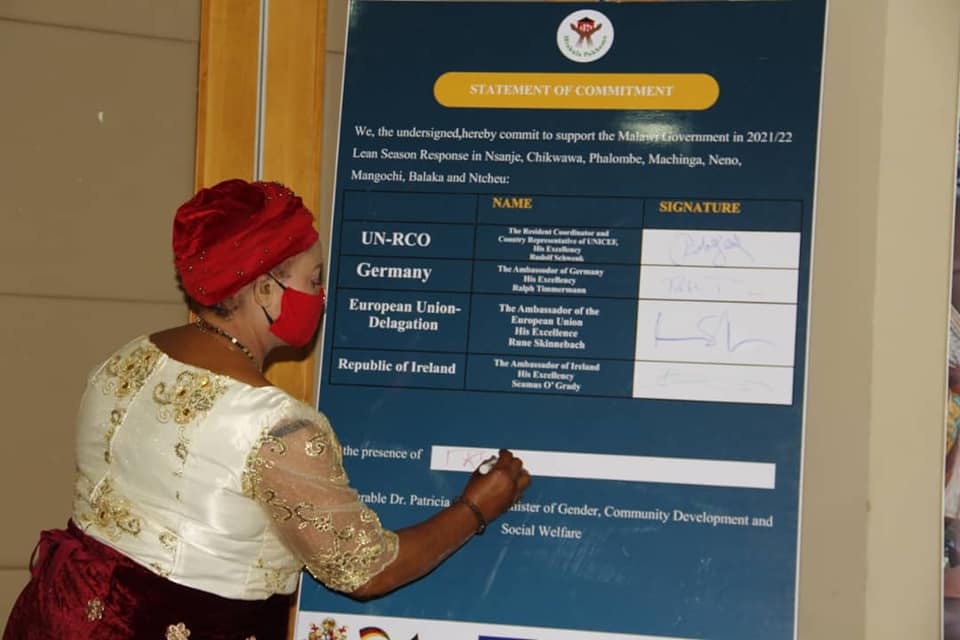Development partners, in collaboration with Malawi Government, have committed US$8.2 million (approximately K6.7 billion) for support towards the implementation of the 2021/2022 lean season response to support households that are food insecure in order to reduce food gaps, protect and restore livelihoods and prevent acute malnutrition.
With this assistance, Government will reach out to 99,553 households in the eight districts of Nsanje, Neno, Chikwawa, Mangochi, Machinga, Phalombe, Balaka and Ntcheu. Each of the beneficiaries will receive K18,000 per month for three months in Nsanje and Chikwawa and for two months in the other districts.
Former Minister of Gender, Community Development and Social Welfare, Patricia Kaliati, who received the symbolic cheque on behalf of Malawi Government in Lilongwe on Monday, described the gesture as a great commitment by both government and development partners in realisation of Sustainable Development Goal (SDG) 1 which is to end poverty in all its forms.
“In circumstances like these, it is usually the ultra-poor and most vulnerable members of the communities that suffer the most. This is due to natural limiting challenges such as old age, disability, childhood and chronic illnesses,” she said.
European Union (EU) Ambassador to Malawi, Rune Skinnebach, said EU is keen to support the lean season response as part of its contribution to strengthening and institutionalisation of mechanism for shock sensitive social protection in the country.
United Nations (UN) Resident Coordinator and UNICEF Representative, Rudolf Schwenk, said the UN is very proud to be part of the shock sensitive social protection and innovation agenda to support Malawi’s national social protection system.
The 2021 Integrated Phase Classification Report by the Malawi Vulnerability Assessment Committee (MVAC) shows that about 1.7 million Malawians will face acute food insecurity between the months of December, 2021 to February, 2022.




